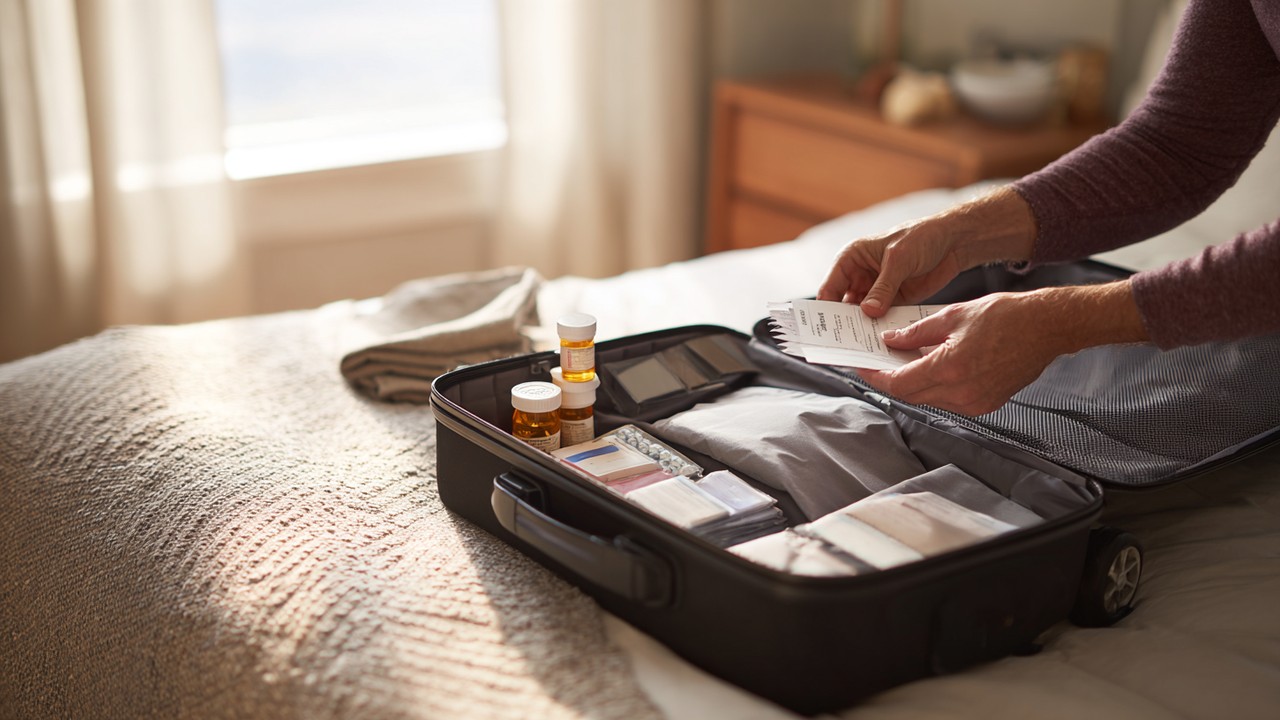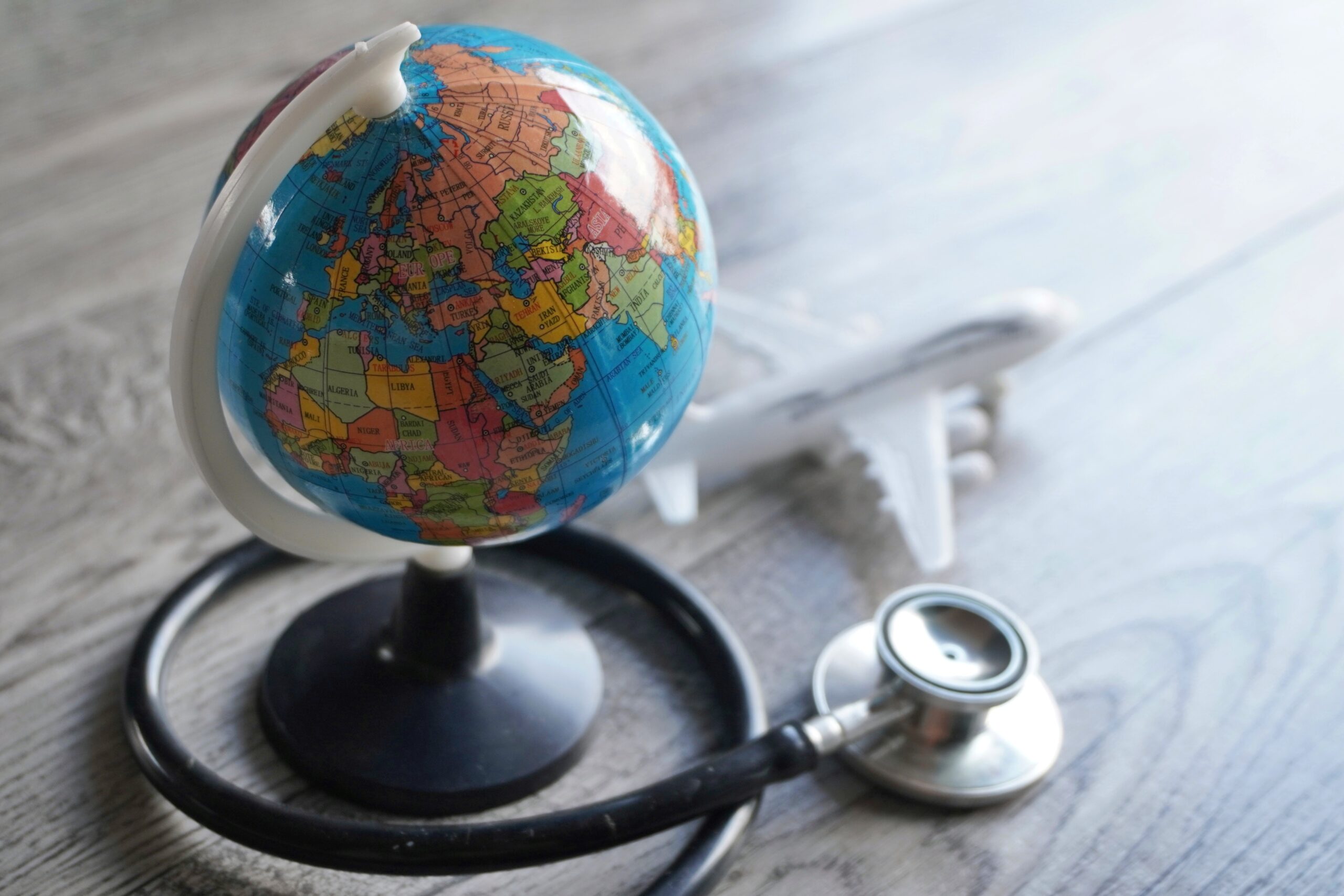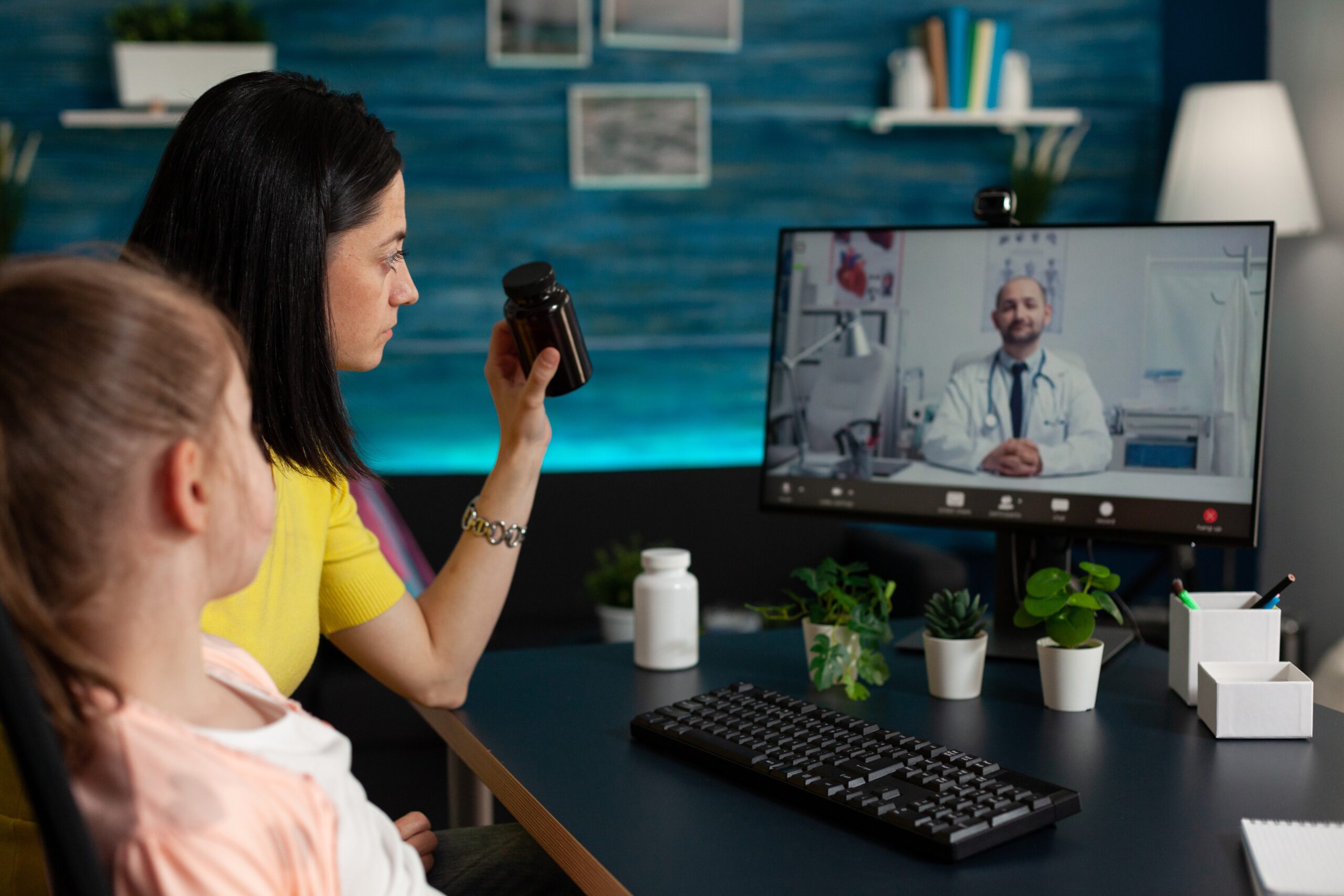Traveling abroad offers an exciting opportunity to discover new cultures and experience different adventures. However, health issues that may arise during this process can overshadow the joy of travel. Being aware of methods to protect yourself from health problems abroad helps you safeguard your personal health and minimize potential health risks. The Importance of Protecting …
Traveling abroad offers an exciting opportunity to discover new cultures and experience different adventures. However, health issues that may arise during this process can overshadow the joy of travel. Being aware of methods to protect yourself from health problems abroad helps you safeguard your personal health and minimize potential health risks.
The Importance of Protecting Yourself from Health Issues Abroad and Basic Risks
Health issues abroad often arise due to factors such as the climate of the traveled region, hygiene conditions, dietary habits, and differences in healthcare infrastructure. The most common problems encountered during travel include infections, allergies, and worsening of chronic diseases. These health risks can increase especially due to unfamiliar environmental conditions.
The most common health problems and travel health
Traveling individuals become susceptible to various infections due to their immune systems' inability to adapt to different environmental conditions. Especially food- and waterborne diseases, digestive system disorders such as diarrhea, and respiratory infections are commonly seen. Additionally, allergic reactions caused by pollen, dust, or different environmental factors can also be considered common health problems.
For individuals with chronic illnesses, the stress brought on by travel, irregular eating, and sleeping habits can worsen existing conditions. For example, managing diseases such as diabetes, hypertension, or asthma can become more difficult due to environmental changes experienced abroad.
Effects of Travel and Relocation on Health
Traveling requires the body to adapt to unfamiliar climates, time zones, and living conditions. These changes can lead to weakened immune system, disrupted sleep patterns, and increased stress levels. Especially long flights or frequent travel can disrupt the body's rhythm, triggering health problems.
In addition, the risk of encountering microorganisms and infectious agents carrying diseases in different geographical areas increases. For example, diseases such as malaria and yellow fever are common in tropical regions, while respiratory infections are more frequent in cold climates. It is critically important for travelers to be aware of these risks and to effectively implement preventive measures.
Individual and societal benefits of protecting against health problems
Protecting against health problems abroad not only ensures the individual's own health protection but also reduces the burden on the healthcare system of the visited country. Preventing the spread of infectious diseases is of great importance for both individual and public health.
Individually, staying healthy makes it easier to enjoy the trip and prevents unwanted health expenses. From a societal perspective, preventing the spread of infectious diseases is essential for international health security. Therefore, paying attention to travel health contributes to the protection of both personal and global health standards.
Being aware of health risks that may be encountered abroad and taking precautions against these risks makes your trip safer and healthier. Thus, you avoid having to deal with health problems while exploring new places. The importance of protecting against health issues should be one of the cornerstones of every travel plan.
The Role of Health Insurance Abroad and Selection Criteria
For everyone traveling abroad, obtaining international health insurance is the most effective precaution against unexpected health issues. Considering the health risks and costs that may be encountered during travel, the importance of insurance becomes even more apparent. Therefore, travel health insurance is not just an option but has become a legal requirement in most countries.

The Importance and Necessity of Overseas Health Insurance
Healthcare services abroad are often expensive, and in many countries, even emergency medical interventions are subject to significant charges. This situation can create a substantial financial burden in cases of sudden illness or accidents. Overseas health insurance minimizes these financial risks by ensuring that your hospital expenses are covered under the insurance.
Additionally, many countries require a valid health insurance policy when applying for a visa or entering the country. This indicates that insurance is a legal requirement. Traveling without travel health insurance can lead to both financial and legal problems.
Types of health insurance and coverage
There are different types of insurance to secure your health abroad. The most common ones are:
- Travel insurance: Usually valid for short-term trips. Covers emergency health services, medical evacuation, and basic health issues.
- Comprehensive health insurance: Preferred for long-term stays. Offers broader coverage; includes routine health check-ups, chronic disease management, and specialist doctor services.
Insurance policies vary according to their coverage. Choosing the right policy based on the purpose and duration of travel ensures full protection against potential health risks.
Things to Consider When Choosing an Insurance Policy
When purchasing insurance, it is necessary to carefully examine the coverage of the policy. You should especially pay attention to the following points:
- Covered illnesses and types of treatment: The policy should cover infections, chronic diseases, and emergencies.
- Emergency services: Services such as ambulance, emergency intervention, and medical transport must be included in the insurance coverage.
- Medication provision: It is important that the supply and costs of necessary medications are covered.
- Policy limits and deductibles: The extent to which treatment expenses are covered and any possible deductible amounts should be clearly defined.
A health insurance coverage selected with attention to these criteria provides strong protection against health issues that may be encountered abroad.
Advantages of Getting Health Insurance Abroad
Having health insurance is not just about financial security. Other advantages of having insurance include:
- Access to fast and quality healthcare services: With insurance coverage, you can receive priority service at your preferred hospitals and clinics.
- Compliance with legal requirements: Especially in regions like European countries where health insurance is mandatory, you avoid legal issues.
- Confidence and comfort during travel: It provides the opportunity to receive treatment without financial worries in case of potential health problems.
- Consular and emergency support services: Insurance companies usually provide 24/7 support, offering guidance and assistance in emergencies.
These advantages make your travel plans safer and less stressful. Traveling without travel health insurance poses risks both for your health and your budget.
Choosing the right insurance policy to secure your health abroad is one of the most important preparations for your trip. This way, you take a strong precaution against potential health risks.
Healthy Living Habits and Preventive Measures Abroad
One of the most effective ways to maintain your health abroad is to consciously and regularly maintain your daily living habits. Healthy living abroad places great importance on fundamental elements such as balanced nutrition, adherence to hygiene rules, sleep patterns, and stress management. At the same time, not neglecting physical activity and taking preventive measures like vaccinations help you avoid health problems.

The Importance of Balanced Nutrition and Water Consumption Habits
Although it is tempting to try different cuisines while traveling, it is necessary to pay attention to your eating habits to stay healthy. Consuming adequate amounts of vitamins, minerals, and proteins that the body needs helps keep the immune system strong. Especially in foreign countries, paying attention to the hygiene conditions of the food consumed reduces the risk of foodborne infections.
Clean and reliable water consumption is critically important for health. Using bottled or purified water is effective in preventing diarrhea and other digestive system disorders. Additionally, avoiding overly sugary or carbonated drinks helps maintain metabolic balance.
Travel hygiene and basic hygiene rules
Paying attention to hygiene abroad is an issue that should not be overlooked in terms of travel hygiene. Infections, which are among the most common health problems encountered, mostly result from a lack of personal hygiene. Therefore, the habit of handwashing is one of the simplest yet most effective protection methods.
- Hands should always be washed with soap and water before meals and after using the toilet.
- Carrying antibacterial gel can be useful for situations where handwashing is not possible.
- Care should be taken to clean hands after touching commonly used surfaces.
- It is necessary to avoid unclean foods and food purchased from street vendors.
These simple measures significantly reduce the risk of infection and provide a healthy travel experience.
Sleep patterns and stress management methods
Disruptions to the body's biological clock during travel reduce sleep quality and can weaken the immune system. Regular and sufficient sleep is necessary for the body to regenerate and build resistance against illnesses. Therefore, it is important to make the sleep environment as comfortable and quiet as possible.
Stress is a significant factor that can negatively affect both mental and physical health. The adaptation process brought by a new country, language barriers, and changes in daily routines can increase stress. Therefore, methods such as breathing exercises, meditation, and light exercise should be applied for stress management. Additionally, seeking social support and professional help when necessary is also beneficial.
Positive Effects of Physical Activity on Health
Maintaining physical activity during travel is important for both physical and mental health. Regular walking, cycling, or participating in light sports activities strengthens the circulatory system and keeps muscles flexible. At the same time, physical movement reduces stress and improves sleep quality.
Avoiding prolonged sitting or inactivity, especially during air travel, supports blood circulation and prevents risks such as thrombosis. This way, you can feel more refreshed and healthy at the end of your journey.
The Role of Vaccines and Protective Measures
One of the most important health preparations before traveling is completing the necessary travel vaccinations and routine immunizations. Vaccines recommended according to the health conditions of the destination provide protection against various infectious diseases. Especially in tropical and developing countries, getting vaccinated against diseases such as yellow fever, hepatitis A and B, and typhoid is vital.
Also, keeping routine childhood vaccinations up to date is necessary for ensuring overall immunity. Protective measures include wearing protective clothing against insect bites, using insect repellent lotions, and adhering to hygiene rules. These precautions play a complementary role in preventing health problems.
Adopting healthy habits and taking preventive measures reduce many health risks that may be encountered abroad. Thus, you will feel safer and healthier throughout your trip.
Access to Health Services and First Aid Information in Emergencies
Sudden health problems or accidents that may occur abroad require quick and accurate intervention. Therefore, having knowledge about how to access emergency health services abroad minimizes the negative effects of health issues. Similarly, knowing basic first aid abroad practices and carrying appropriate supplies with you can be life-saving in emergencies.

Ways to Access Emergency Health Services Abroad
In an emergency, it is important to learn in advance how to access health services in the country you are in to get help as quickly as possible. While general emergency call numbers like 112 in European countries and 911 in America exist, different numbers may apply in some countries. Therefore, it is useful to note and save the emergency health numbers of the country you are traveling to on your phone.
In emergencies:
- Local emergency numbers should be used to call an ambulance.
- The address and contact information of the nearest hospital, clinic, or health center should be researched in advance and included in your travel plan.
- Consulates can provide support in emergency health situations; their contact information should also be kept with you at all times.
This information enables you to act quickly during stressful and panic moments and facilitates timely access to healthcare services.
Contents and Use of the First Aid Kit
When traveling abroad, it is very important to carry essential first aid supplies with you to be able to provide initial intervention against unexpected health issues. A well-equipped first aid kit can address a variety of needs, from minor injuries to serious conditions.
The basic contents of a first aid kit are:
- Sterile bandages and gauze pads
- Antiseptic solution or wipes
- Adhesive bandages and various tapes
- Pain relievers and fever reducers
- Antihistamine cream or tablets (for allergic reactions)
- Scissors, tweezers, thermometer
- Elastic bandage (for sprains or strains)
- Personal prescription medications and dosage instructions
Knowing how to use these materials enables effective intervention in emergencies. Additionally, receiving first aid training before traveling helps you act more consciously in health issues.
What to do in an emergency and contact information
When experiencing a medical emergency, it is vital to act calmly. First, the severity of the situation should be assessed. If there is a life-threatening condition, the emergency medical number should be called immediately, and clear information about the location of the incident should be provided. If possible, those around you should also assist with the situation.
In terms of communication, the following should not be forgotten:
- Numbers and addresses of local health services should be known in advance.
- Consulates or embassies provide assistance to citizens experiencing health issues abroad; the phone numbers and addresses of these institutions should be recorded.
- The emergency support line of the travel insurance company should be called, and the policy number should be kept ready.
Easily accessing this contact information prevents loss of time in emergencies and ensures you receive the necessary help quickly.
Pre-planning for health issues: hospital and doctor research
Researching healthcare institutions in the area to be visited before going abroad is an important preparation against possible health issues. Especially individuals with chronic illnesses or special health needs should gather information about specialist doctors and hospitals in the region where they will stay.
Points to consider during the planning phase:
- The quality of service and language situation of hospitals and clinics in the region
- Health institutions covered by insurance
- Locations of emergency services
- Specializations of doctors and healthcare personnel
This information ensures quick and accurate guidance when health issues arise and facilitates the treatment process.
Access to emergency health services and first aid information abroad plays a critical role in reducing the impact of health issues. Therefore, these topics should be given due importance when planning travel. This way, your health remains secure even in unexpected situations, and your trip continues uninterrupted.
Practical Tips and Personal Preparations to Protect Against Health Issues Abroad
A comprehensive health preparation before traveling abroad is of great importance to prevent health problems that may be encountered during the trip. Health preparation abroad is not limited to medical check-ups but also includes arranging necessary documents, obtaining medications, and planning personal health management. This way, quick and effective intervention is ensured in the face of potential health issues.

Pre-travel health checks and necessary documents
Health checks to be done before traveling abroad are critical for monitoring existing illnesses and identifying new risks. Especially those with chronic conditions should undergo a medical examination and receive information about potential health risks they may encounter during travel. Additionally, having general health screenings before the trip allows you to detect possible issues in advance.
The necessary health documents include:
- Current health reports and doctor’s notes
- Vaccination cards and travel vaccination certificates
- Prescriptions and medication usage instructions
- Insurance policy and emergency contact information
Storing photocopies of these documents digitally also makes your work easier in case of loss or access issues.
Transporting Medications Abroad and Issuing Prescriptions
Medications that need to be used during travel must be carried completely and regularly with you. Especially when transporting prescription medications abroad, it is recommended to keep the medication in its original packaging along with the doctor's prescription. In some countries, the use or transportation of certain medications may be restricted by law; therefore, legal regulations should be researched in advance.
Having a sufficient amount of medication with you prevents problems with obtaining medication during the trip. Additionally, having prescriptions translated into English or the official language of the destination country facilitates communication with healthcare personnel.
Awareness of health issues and use of information resources
Being informed in advance about health risks that may be encountered abroad and methods of protection enables you to act consciously. It is important to research the healthcare system, common diseases, and emergency procedures of the country you will be traveling to. Official health institution websites, travel health guides, and publications from international health organizations provide reliable resources on this matter.
Additionally, mobile applications can be used to access up-to-date health information during travel. This way, in emergencies, you can quickly reach accurate information and take effective measures against health issues.
Storing personal health records digitally
Thanks to modern technology, storing your personal health records digitally is quite practical and provides great convenience in emergencies. Digital files containing all your medical history, allergies, medications you use, and chronic illnesses can be quickly presented to doctors or healthcare personnel while traveling.
For this, reliable and password-protected health applications or cloud storage services should be preferred. This way, problems that may arise due to lost or forgotten documents are prevented.
Determining the person and institutions to contact in case of health problems
When experiencing health problems during travel, it is necessary to identify in advance the persons and institutions to contact in order to receive quick and accurate assistance. These persons include family members, your doctor, the emergency support line of your travel insurance company, and the consulate in the country you are in.
Contact information should be organized as follows:
- Phone numbers and email addresses of family members
- Contact information of your own doctor
- 24/7 support hotline of the travel health insurance company
- Emergency numbers of the consulate or embassy
Carrying written and digital copies of this information with you ensures that you can receive help without delay in emergencies.
Practical precautions and comprehensive personal preparations to protect against health issues that may be encountered abroad make it possible for your trip to proceed smoothly and healthily. These preparations create a strong shield against unexpected health problems and positively affect your travel experience. Thus, by effectively implementing health protection methods, an enjoyable and safe journey is ensured.





